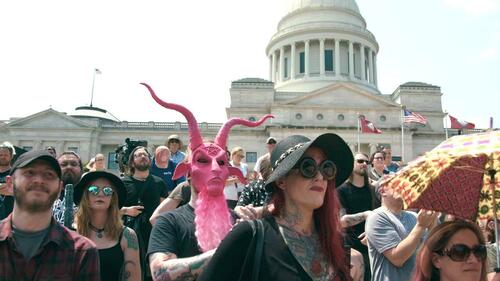Now that Pathaan is a major hit, there are some lessons for all of us: Not just those who wished the film well but also those wanted it to fail.
The last time I wrote about Pathaan, the film had just released, and it was too early to predict whether it would be a super hit or not. But, as I wrote then, the fact that its advance booking had broken records suggested that people had paid no attention to the boycott calls. Whether Pathaan was a super hit or not would depend on how good or bad a film it was. Word of mouth would decide the film’s eventual fate.
What I did not expect was the rapturous response— perhaps out of all proportion to the film’s quality – that Pathaan has received from audiences. People have danced in the aisles in cinemas, and at the early shows, every time Shah Rukh Khan appeared on the screen, there were cheers from the audience. And the film’s success has caused an outbreak of glee among liberals and secularists.
So, a few cautionary warnings may be in order. Yes, Shah Rukh remains one of India’s most popular stars. He has very loyal fans. There is a widespread feeling – which is not only restricted to his fans — that he has been unfairly treated over the last few years. The persecution of his son, accompanied by an orgy of gloating and naked hatred from sections of the Hindutva lobby and its pet TV anchors was enough to make any decent person want to throw up.
Some of the joy that has greeted Pathaan’s success comes from some national desire to make up to Shah Rukh for the way in which he and his family have suffered. We know that Shah Rukh has done nothing wrong: He is just collateral damage in a political and ideological battle.
But the conclusions that many secular liberals are drawing from Pathaan’s success are not warranted by events. This is not a protest against the Modi government. Many of the people who are cheering Shah Rukh will go on to vote for the BJP again. In their minds there is no conflict between loving Shah Rukh and supporting Narendra Modi.
Mr Modi, who is clearly the smartest politician in India, had read the writing on the wall and already distanced himself from those who wanted to boycott Shah Rukh and Pathaan. A week before the film released, he told the BJP National Executive how upset he was that all the hard work his government had put in was being overshadowed by unnecessary controversies over films, set off by irresponsible remarks that some headline-seekers had made.
When the boycott failed and the film went on to become a super-hit, it did not reflect on Mr. Modi. The failure was laid at the doorstep of the irresponsible headline-seekers whom Mr Modi had already upbraided.
Once the film’s success was no longer in doubt, the government appears to have given the go-ahead for ministers to criticise the boycotteers. On the side-lines of an event in Mumbai, the information and broadcasting minister Anurag Thakur told the press that boycotts “should not happen as they affect the atmosphere”. He added, “sometimes people make comments without complete knowledge just to vitiate the atmosphere. It should not happen. In a country like India when we want to enhance our soft power, when Indian films are making a name in different parts of the world, such things definitely affect the atmosphere.”
There was nothing wrong with what Thakur said. Except for the timing. If these were his views, why didn’t he express them when they could have made a difference: When his party colleagues were protesting against Pathaan? Why wait till the boycott had failed?
Nevertheless, the government’s declaration that film boycotts are now out of bounds will cause a radical rethink in the sangh parivar strategy. Almost from the time Mr Modi took office, many people in his party have declared war on Bollywood. Abuse, troll attacks, boycotts, campaigns claiming that the film industry is pro-Muslim, anti-Hindu, calling it Urduwood and other similar tactics have been commonly employed.
Does all this change? And if it doesn’t then what does this do to Mr Modi’s authority, to his image as the sangh parivar’s supreme leader?
These questions still have to be answered. But certainly, the language employed by both Mr Modi and his minister, will reassure many actors and filmmakers.
They may wonder: What caused the change of heart?
Was it recognition that the sangh parivar’s war on Bollywood was leading to no clear victory? Was it that the BJP already has Bollywood terrified and has no reason to destroy what it has already conquered? Or does Mr Modi genuinely think that these communally-charged assaults on one of the world’s largest film industries have now gone too far?
Nobody really knows. So, yes, the success of Pathaan is a defeat for the bully boys of the boycott brigade but it is not necessarily a setback for the Modi government. But if it heralds a ceasefire in the war against Bollywood then it is a victory for common sense and for India itself.
















